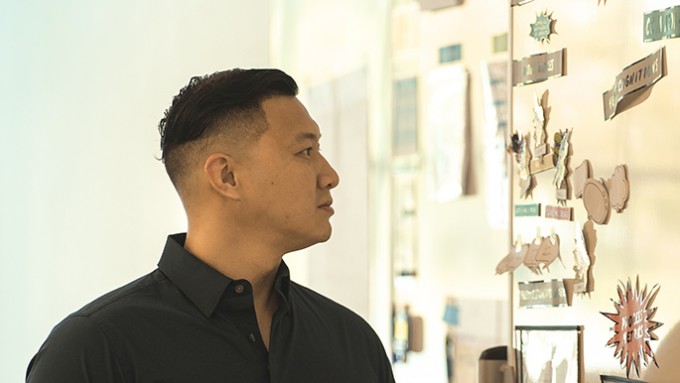My Specialty
Care Management, Jonathan Lee, Inland Empire Health Plan
Providing resources, guidance and care coordination telephonically

Jonathan Lee, RN
Care Manager, Cal-Medi Connect
Inland Empire Health Plan (IEHP)
Please share with us the arc of your nursing career.
Nursing is my second career. I was a graphic designer for a few years, but several things brought me back to school to study nursing. I have many family members in the medical field, and it was on my mind even when I went into the arts. Since I gravitated towards psych nursing and behavioral health during school, I went directly into an inpatient psych unit after I graduated in 2013. I was working in one until I took this position at IEHP about a year ago.
What’s a typical day like for you?
Our work as care managers is strictly telephonic, so I’m on the phone a lot with our members. (We don’t call them “patients” or “clients.”)
IEHP is the largest not-for-profit health plan in the country, with a staff of more than 2,000 and more than 1.2 million members in San Bernardino and Riverside counties. Our members range from individuals with multiple complex comorbidities to those with fewer medical issues who still want to avail themselves of the many resources IEHP offers.
My typical work day involves focusing on triaging members to see whose needs are most pressing and should be addressed first, with the top priority being those newly discharged from the hospital. The post-hospitalization process can be stressful for any member, and I’m there to provide information, resources, guidance and care coordination.
Some members use IEHP services in an episodic way, but we still keep in touch as needed and make sure they’re healthy and well-resourced.
What are some common health concerns for your members?
The most common are CHF [congestive heart failure], uncontrolled diabetes, complicated COPD [chronic obstructive pulmonary disease], various cancers and chronic pain. There’s no 100 percent typical patient, but those are some of the comorbidities we see most often.
Our members also present with a significant number of mental health and substance use disorders. Some members’ mental health can be quite fragile, especially when they carry the weight of managing many conditions, symptoms and polypharmacy. Some may have a significant psychiatric history or mental health diagnoses.
As a nurse care manager, I can of course discuss these issues with them as needed, but we also have an amazing behavioral health department that offers complete multidisciplinary coordination. We offer many resources, so our members are covered for whatever they need.
Describe some of the challenges of your job.
Since our cohort is so varied and can present with such different needs, I have to be versatile and adaptable at all times. Since we don’t use video platforms, a major challenge in creating rapport is the loss of the nonverbal communication that we humans rely on so much.












